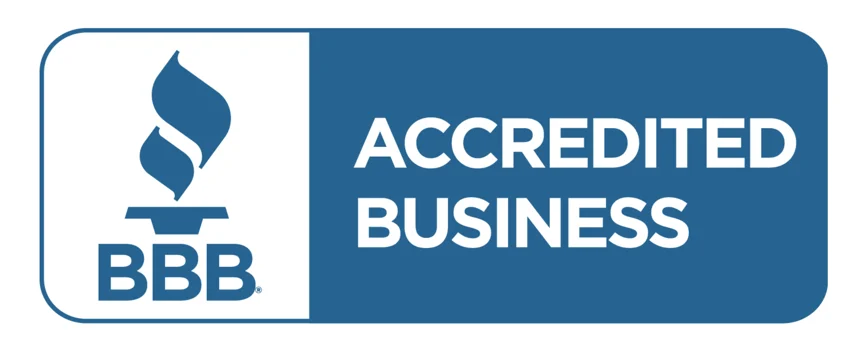What Are the Tax Implications of Selling a House?
May 06, 2025 | Hanna Cena
Selling your home is a big step—and the profit you make can feel like a fresh start. But before you celebrate, it’s important to understand the tax implications of selling a house. While many sellers in Michigan walk away without a tax bill, others may be surprised by capital gains taxes or other reporting requirements. So how do you know what applies to you?
Let’s break it down into simple terms.
Do You Always Have to Pay Taxes When You Sell a House?
Not always—and that’s good news for most homeowners in Michigan.
The IRS offers what’s called the “primary residence exclusion”, which allows you to exclude a large portion of the profit (called capital gains) when you sell your main home. To qualify, you must meet two main criteria:
✅ Ownership Test:
You must have owned the home for at least two years out of the last five years before the sale.
✅ Use Test:
You must have lived in the home as your primary residence for at least two of the last five years.
The two years don’t have to be consecutive. So if you lived in the home for one year, rented it out for two, then lived in it again for another year—you may still qualify.
Exclusion Amounts:
- Single filers can exclude up to $250,000 in profit.
- Married couples filing jointly can exclude up to $500,000.
These exclusions apply per sale, not lifetime. That means if you meet the qualifications again in the future, you could claim the exclusion again.
Real-Life Example:
Imagine you bought a home in Wyoming, MI for $180,000 five years ago. Now, you’re selling it for $400,000. That’s a $220,000 profit. If you’re married and meet the 2-out-of-5-year rule, you won’t pay a cent in federal capital gains tax on that profit.

When Do You Have to Pay Taxes?
Even though many homeowners qualify for the exclusion, not everyone does. Here are the most common reasons why you might have to pay capital gains tax when selling your home:
❌ You Didn’t Meet the Residency or Ownership Rules
If you’ve only lived in the home for one year and then decided to sell, you won’t qualify for the full exclusion. In this case, you may have to pay taxes on the entire profit from the sale—or at least a portion of it.
🔍 Partial Exclusion Tip:
If you sold the home early due to job relocation, health issues, or unforeseen circumstances, the IRS might allow a partial exclusion. For example, you could exclude $125,000 of gains instead of the full $250,000.
🏠 The Home Was an Investment or Rental Property
Selling a rental property, vacation home, or house-flip is treated differently. These are not considered primary residences, so the IRS does not allow you to use the exclusion.
In these cases, the profit is considered a capital gain, and it’s taxed at either:
- Short-term capital gains rates (if held for less than 1 year — taxed as regular income), or
- Long-term capital gains rates (usually 0%, 15%, or 20%, depending on your income)
This is important for homeowners in cities like Grand Rapids or Holland, where investment properties are common.
💰 Your Profit Exceeds the Exclusion Limit
Let’s say you bought a home in East Grand Rapids for $300,000 and recently sold it for $900,000. That’s a $600,000 gain. If you’re married filing jointly, you can exclude $500,000, but the remaining $100,000 may be subject to capital gains tax.
While this scenario may seem rare, it’s becoming more common in fast-growing West Michigan markets where property values have skyrocketed.
What About State Taxes in Michigan?
You might breathe a sigh of relief knowing that Michigan doesn’t have a separate capital gains tax. But that doesn’t mean you’re completely off the hook.
Here’s How It Works:
While Michigan doesn’t charge capital gains tax the way some states do, any profit you make from selling your house is considered part of your income for the year. That means it gets taxed under the state’s flat income tax rate, which is currently around 4.25% (as of 2025).
So, even if you manage to avoid paying federal capital gains tax thanks to the IRS exclusion, you might still owe something to the State of Michigan—especially if:
- You didn’t live in the home long enough to qualify for the federal exclusion
- You sold an investment or rental property
- Your gain exceeds the $250,000/$500,000 exemption threshold
📌 For reference, you can view Michigan’s income tax guidelines directly from the Michigan Department of Treasury website.
Example Scenario:
Let’s say you sold a home in Kentwood, MI, and made a $100,000 profit.
- If this home wasn’t your primary residence—or you didn’t meet the 2-out-of-5-year rule—you may owe federal capital gains tax on that amount.
- On top of that, Michigan will also treat that $100,000 as ordinary income, and you’ll pay 4.25%, which comes out to $4,250 in state taxes.
This applies to residents across the state, whether you’re in Hudsonville, Sparta, or Comstock Park.
The Good News for Michigan Sellers:
If you do qualify for the federal exclusion, that gain is excluded from both federal and state tax calculations. So, in many cases, you won’t owe anything on the sale of your home—if you meet all the criteria.
Still, tax laws can be tricky, and it’s always a good idea to consult a tax professional, especially if you’ve:
- Sold a home after a divorce
- Inherited a property
- Used the home for both personal and rental purposes
Are There Tax Deductions You Can Take?
Yes! Here are some things you may be able to deduct to reduce your taxable gain:
- Home improvement costs (with proper documentation)
- Real estate agent commissions
- Title fees and legal costs
- Closing costs
Just keep detailed records and consult a tax advisor.
Special Situations to Consider
Selling After a Divorce
If you owned the home jointly before the divorce, you may still be able to claim the $500,000 exclusion—if you meet the ownership and residency rules.
Inheriting a House
If you inherited a home in Michigan and sold it, your tax bill is based on the home’s value at the time of inheritance, not what the original owner paid.
Selling a Home During a Job Relocation
You might qualify for a partial exclusion if you had to move for work and didn’t meet the full 2-year rule.
Local Insight: How This Affects Sellers in West Michigan
In Kent County, Ottawa County, and surrounding areas, the real estate market has been on the rise. If you’ve owned your home for several years in cities like Wyoming, Holland, or Lowell, you could be sitting on significant equity.
While that’s great news, it also increases the chances of hitting the capital gains exclusion limit—especially for couples selling higher-priced homes in East Grand Rapids or Grand Haven.
At Hometown Development, we understand how local tax laws and rising home values can impact your selling process. Whether you’re in Comstock Park, Zeeland, or Hudsonville, we’re here to walk you through your options.
Final Thoughts: Don’t Let Taxes Catch You Off Guard
The tax implications of selling a house don’t have to be scary—especially when you understand the basics. The key is knowing your eligibility, keeping good records, and asking the right questions ahead of time.
If you’re planning to sell your home and want to avoid the hassle of figuring it all out alone, Hometown Development is here to help. We buy homes in Kent, Ottawa, and Ionia Counties, as well as nearby cities throughout West Michigan. We’ll make a fair cash offer, help you skip the repairs, and walk you through the process—including any tax concerns.
📞 Ready to Sell? Let’s Talk.
Reach out to Hometown Development today for a no-pressure consultation. We’ll help you sell your home fast—without hidden fees or surprises at tax time.







